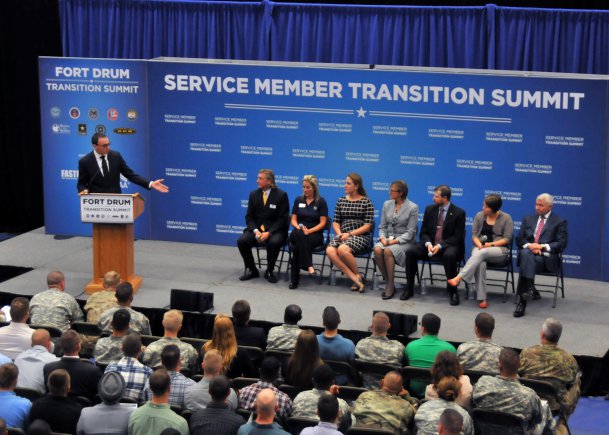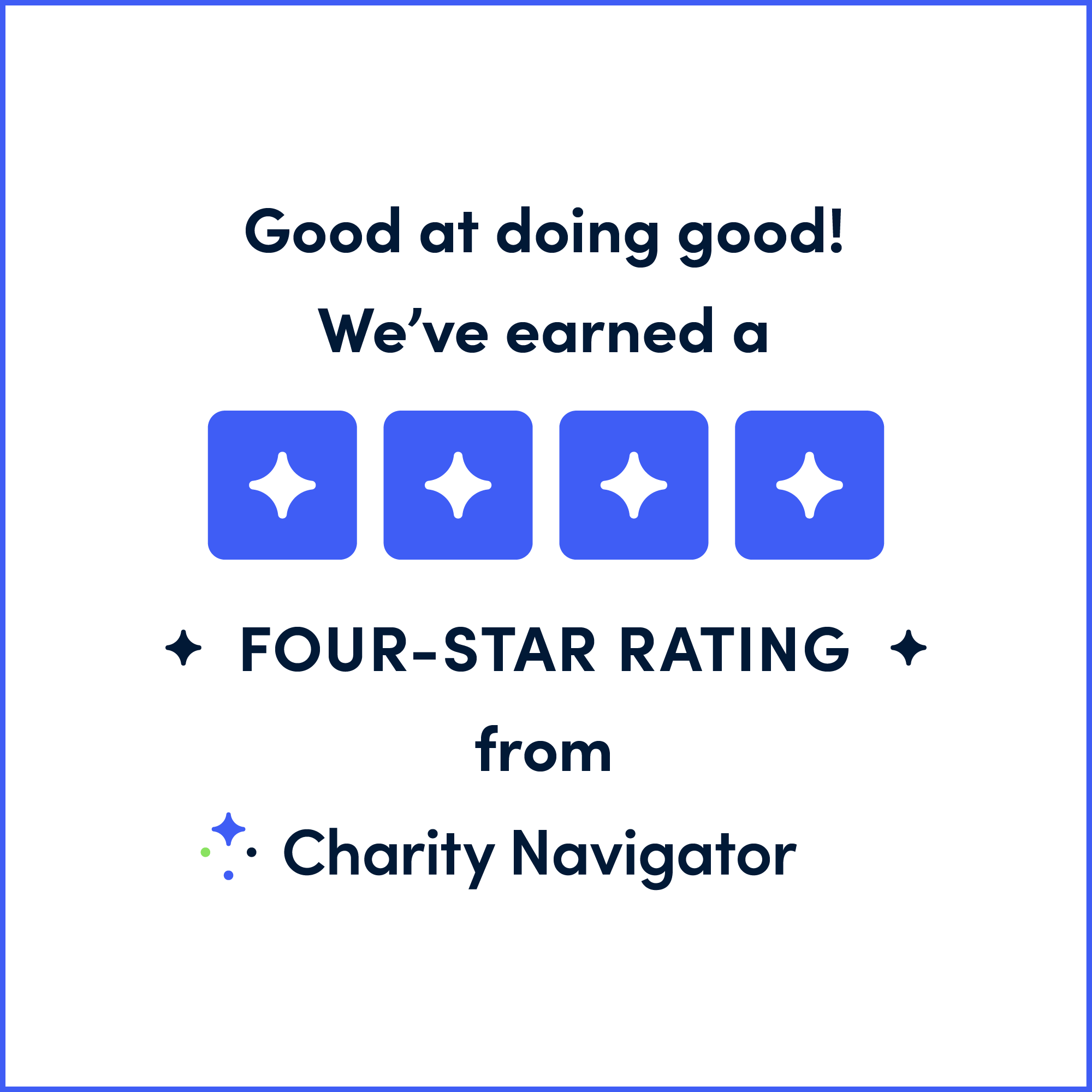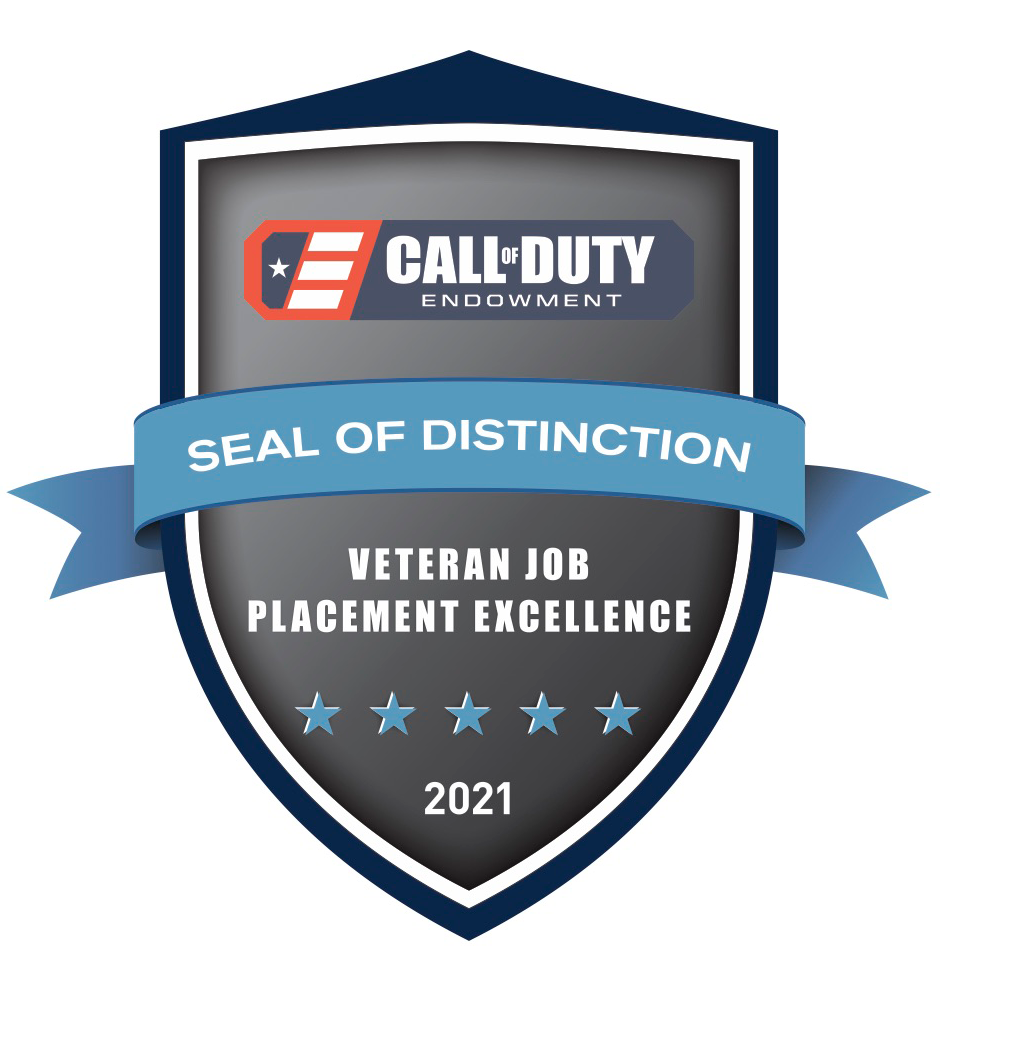Summit panelists encourage job-seekers to leverage military experience, skills

FORT DRUM, N.Y. (Sept. 3, 2015 ) -- Brig. Gen. Michael Howard, 10th Mountain Division (LI) deputy commanding general for operations, described it as an Olympic-sized event and urged everyone in attendance to seize the opportunities available at the Transition Summit here, Aug. 26-27.
"It's perfect for getting you thinking about yourself and your future," Howard said. "You will get a lot of good information, and more importantly, a lot of good contacts that you can work with after this is over."
Howard addressed roughly 1,000 attendees at Magrath Gym during the Transition Summit, and said although only 1 percent of Americans serve in the armed forces, it is a highly sought-after percentage.
"Soldiers bring a mix of skills to an employer … discipline, hard work, leadership, maturity, team work, calm under pressure, critical thinking and a dozen more," Howard said. "Some of these skills came from pretty harsh classrooms in combat in Afghanistan and Iraq. You have far, far more to offer employers than you know."
He spoke about someone in his own Family, who recently was laid off, after 20 years, from a Fortune 500 company.
Howard said there won't be career workshops, networking sessions with employers and resume-building assistance for his relative.
"You have all of that here," Howard said. "Soldiers, what I'm trying to tell you, in America, there is no company or corporation that invests the time, energy and resources into your future like the military."
Marine Corps Sgt. Maj. Bryan B. Battaglia, senior enlisted adviser to the chairman of the Joint Chiefs of Staff, was the keynote speaker before an interactive panel discussion on transitioning into the civilian business sector.
He advised all the Soldiers to take advantage of the Soldier for Life-Transition Assistance Program, or SFL-TAP. No matter the length of one's military service, everyone needs an exit strategy and the SFL-TAP has redesigned curriculum for achieving this called the Transition Goals, Plans, Success, or GPS.
"You have to take advantage of what it offers to really feel the dividends it can provide for you, your organization and your Family," he said. "I'm happy to announce that this newer version of transition assistance is really going to pay off, if you use it as it was intended."
Battaglia advised including Family in the decision-making process, whether that should be pursuing a new career, higher education or entrepreneurship. Also, be mindful that success may not be immediate.
"You may even find yourself shifting jobs two or three times after you've separated from the armed forces just to find your niche," he said.
He also spoke about a reality that often hits hard to one's expectations and pride.
"I may not likely walk into my next career with what I have now and that same level of responsibility. I may have to start a couple of rings down," Battaglia said. "Don't take that as a demotion or being treated as a second-class citizen. The reality, in some cases, is that it is a new arena and I'm going to play by a different set of rules and a different type of culture."
Several members of the audience asked the panel for advice on how to best assimilate into a new working environment.
"It's a harsh truth to know that you might take a pay cut," said Ross Cohen, U.S. Chamber of Commerce Foundation vice president and Hiring Our Heroes executive director. "I don't want to say it's likely, but it certainly happens when you take that first job. Know that, and don't let it get you down."
Cohen, who moderated the panel discussion, said it took about several years after transitioning out of the Army to catch up, in terms of compensation and salary, with his peers who hadn't serve in the military.
One Soldier said he had just re-enlisted for another four years but plans to transition after that contract is finished.
"We always say the best time to look for a job is when you already have a job," said Lorrie Guler, Fort Drum transition services manager. "You are firmly entrenched in what you are doing right now and so it's the perfect time to start evaluating what you might like to do."
The panel also recommended finding mentors, who have similar interests and have already completed the transition. The American Corporate Partners website and hiringourheroes.org are two resources that offer mentorship assistance. Cohen said 80 percent of jobs are found through networking and having a community of people, who can offer support.
"You need to find somebody who has gone in the same direction that you want to go, and learn from that person," said Wayne Boswell, director of private and public engagement at the Transition to Veterans Program Office for the defense secretary. "They've already faced the challenges and found a way."
Boswell said that there is no single piece of advice that best applies to all the job-seekers in attendance other than having confidence.
"The military has instilled that in you the entire time you have served," he said. "They have given you some incredible opportunities and unique challenges, and you have succeeded in every single one of those. So, you have to believe in yourself."
Panelists answered questions, clarified hiring myths, and at times, alleviated concerns some future job-hunters are already experiencing. One junior enlisted was worried about entering the civilian workforce at an older age than college graduates.
"Age doesn't matter," said Bill McLennan, FASTPORT chief executive officer. "It goes back to your experience and skill sets. You're continuing to build credentials, and that's what they teach you in the Army; you continue to learn and keep your skills current. [Employers] will be looking at the full body of work that you've done against that capability and qualification set that you have."
After the panel adjourned, Boswell spoke more with the Soldier who just re-enlisted about what to do the next four years.
"I think self-assessment is critical, and I told him I would spend the next four years getting to know yourself better," Boswell said. "It takes more time than you think."
He also recommended developing a post-service budget.
"For a lot of service members that becomes the ultimate reality check," Boswell said. "You're leaving an environment where a lot of facilities and resources are available, and then you have to pay for a lot of those things."
Before the hiring fair commenced, attendees could choose among nine 30-minute sessions, including resume writing and Small Business Administration workshops.
Sgt. Leandria Thrasher, from 210th Brigade Support Battalion, 2nd Brigade Combat Team, attended transportation, solar and nanotechnology workshops. With military specialties in chemical and supply and with a degree in electronics, she wanted to learn more about those industries.
"My main reason for being here was just to get more information because I am undecided about whether I'm going to reenlist or transition out," she said. "I thought this would give me an idea about what's available out there."
Spc. Chris Edwards dressed to make an impression at the hiring fair.
"I'm a hands-on kind of guy - a welder - and I saw a couple jobs in the trade that I'm in," said Edwards, from 514th Support Maintenance Company.
Less than a month away from transitioning out of the Army, Edwards left the Transition Summit with a few business cards and a positive outlook.
"It was good to just get out and look at what's available," he said. "I definitely know more now. It kind of expanded my horizon."











